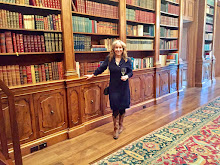The busy summer home selling season is over, and your house is still on the market? Maybe it's time to make some changes and shift your marketing efforts into another gear.
Homes that have been on the market a long time compared with the neighborhood’s average are a challenge. Often it indicates that the seller’s expectations are unrealistic. And it always indicates that the buyers have spoken and what they're saying is that the property is overpriced for either the area, condition or some other factor.
So what do you as the homeowner do about it?
First determine if you have given the market enough time to respond to your offer to sell. Often a property that lags on the market starts to smack of either desperation or difficulties. But sometimes sellers panic unnecessarily during those initial weeks on the market. Find out from your agent the average time it takes for a home to go under contract in your neighborhood. Higher price ranges and unique properties typically take a little longer to sell. If it has been enough time, then maybe it's time to ....
Switch to Plan B. Determine what needs to change to get your property sold. If your agent has advised you correctly, marketed it well and the online photos are excellent, then it's probably not your agent who is the problem. It's you. Reconsider changes does your agent recommends.
What is the feedback from the other agents and potential buyers who have seen the property? Is there are recurring theme in the feedback? Does something need updating or is it just the price?
Work with your agent as a team with the shared goal of selling the property. Experienced agents know that the number one reason for a lagging listing is overpricing. But be willing to consider everything. Take another look at the home's presentation, price, accessibility and marketing.
The market will always let you know if the price makes sense for that location and condition.
[where: 75230]













